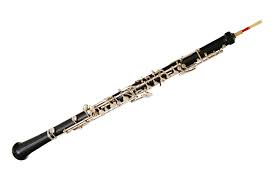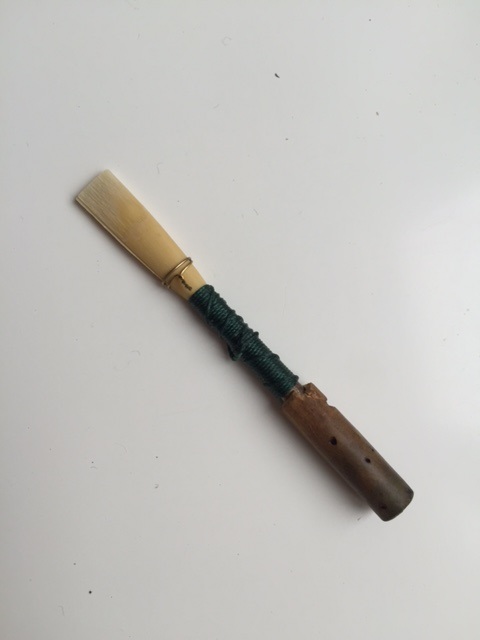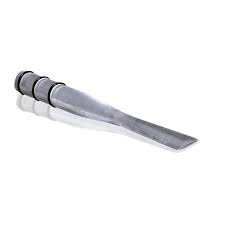When I was 21, more than a year or two ago, I wanted to be a professional oboist. It wasn’t an utterly unrealistic ambition, but I soon realised that I wasn’t good enough to win one of the very few orchestral places available to oboists, and I certainly wasn’t brave enough. I’ve enjoyed playing as an amateur for the last 35 years and musical moments have been amongst the happiest in my life. It isn’t all or nothing. You can be a businessman and an amateur musician, or indeed a musician and an amateur businessman. If I didn’t have to spend hours making oboe reeds, I would play more often.
In retrospect, I don’t regret abandoning my musical ambitions. You can’t do everything, and what I’ve done I’ve enjoyed. As a business software consultant, software designer, and entrepreneur, I’ve led a less terrifying life and certainly a more secure and materially rewarding one.
The life of a professional classical musician is insecure, often uncomfortable, and it’s generally poorly paid, considering the talents and diligence required to make a success of it. Sadly, classical music is a minority interest, so it’s hard to argue for massive salary-boosting state support. The average age of audiences at concerts of classical music creeps ever upwards. At an opera house I can still feel young.
Few musicians become rich, but if they do, it’s usually because they find a wider audience. Take the Three Tenors, for example: Luciano Pavarotti, Placido Domingo and Jose Carreras. When they came together regularly in the 1990s for acrobatic displays of the tenor’s skills, they made millions, deservedly.
In Eastern Europe, particularly, the life of a classical musician is hard. The best flee westwards, but those who remain must play and teach every hour or every day if they are to keep the wolf from the door. They can rarely buy the musical instruments they need and deserve, without help.
How wonderful, then, to hear that a modestly successful Russian cellist, Sergei Roldugin, is one of the richest musicians in the world. In 1980 he won third prize at the Prague Spring international Music Festival, went on to lead the orchestra at the Mariinsky Theatre in St Petersburg and taught at the St Petersburg Conservatory. He’s worth many tens, possibly hundreds of millions of dollars. Unsurprisingly he’s described as a ‘musician and businessman’, and certainly it’s hard to see how playing the cello alone could have brought him such prosperity.

In the musical world, as in all other worlds, you need talent, hard work, luck and good connections to succeed. Sergei Roldugin has been fortunate in all of these, not least in the last. He’s one of Vladimir Putin’s closest friends, godfather to Putin’s daughter, Maria. They’ve known each other for 40 years.
Best friends forever

I hadn’t thought of Vladimir Putin as a fan of classical music. I’d understood that Abba was his cup of tea. But clearly he’s a fan of the cello and it appears that Roldugin’s friendship with Putin has put him in the way of some irresistible business opportunities, if the recently hacked Panama Papers are to be believed. Roldugin, who has no background in complex financial transactions, appears to have taken full advantage of them.
In 2014, when other close friends of Putin were alleged to have become immensely rich through their association with the President, Roldugin claimed to be the exception. ‘I’ve got an apartment, a car and a dacha. I don’t have millions,’ he sais.
The Panama Papers suggest otherwise. They show that he’s involved with several offshore companies that have been wheeling and dealing with verve and imagination. Such expertise has little to do with playing the cello, and more to do with the borrowing and lending of vast sums of money for massive gain.
His gain? Who’s to say? Perhaps he doesn’t even know what’s being done in his name. Some suggest he’s merely the guardian of his old friend’s money.
Nyet is the usual stonewalling response to accusations of this nature in Russia. Roldugin, even Putin, are practised Nyet sayers. It seems that these complex financial transactions are all to do with providing musical instruments for Russia’s young musicians.
Five days ago, breaking his silence on the issue, Roldugin explained everything. He’d been regularly asking rich businessmen for donations.
‘Of course I went around to everyone I could and asked for donations. There’s nothing to catch me out on here; everything is open. In any case I am indeed rich; I am rich with the talent of Russia.’
Certainly classical musicians in Eastern Europe need support. But from whom, in the West, have these instruments been bought, and for whom in Russia? Will someone step forward to reveal a whole orchestra of fabulous Stradivarius instruments? If so, I’ll happily eat my oboe.










